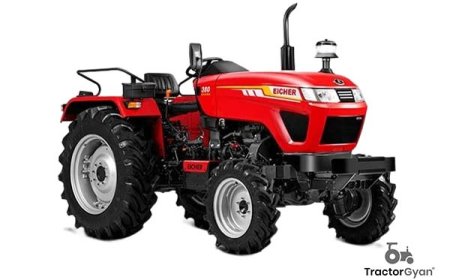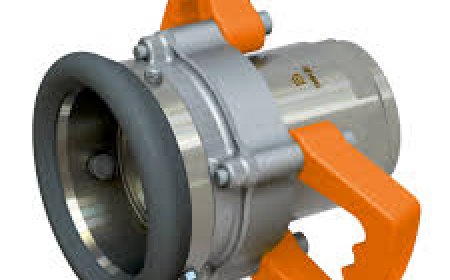Why Diesel Cars Need Different Oil Change Intervals

If you drive a diesel vehicle, youve probably noticed that your oil change schedule isnt quite the same as that of a gasoline-powered car. Thats not a coincidence diesel engines work differently, and so do their maintenance needs.
This article explains why diesel vehicles require different oil change intervals, what affects the timing, and how to take better care of your diesel engine for maximum performance and longevity.
? How Diesel Engines Differ From Gasoline Engines
To understand oil change intervals, you need to know what makes diesel engines unique.
Heres a breakdown:
|
Feature |
Diesel Engine |
Gasoline Engine |
|
Compression Ratio |
Higher |
Lower |
|
Operating Temperature |
Higher under load |
Generally lower |
|
Torque Output |
Higher at lower RPM |
Lower at lower RPM |
|
Combustion Byproducts |
Soot, more carbon |
Less soot |
|
Turbocharging |
More common |
Less common |
These differences lead to greater stress on engine oil in diesel engines especially from soot, heat, and pressure.
? 1. Soot Contamination: A Diesel-Specific Challenge
One of the biggest reasons diesel oil must be changed more carefully is soot.
Diesel combustion naturally produces more soot than gasoline combustion. While modern diesel oils are designed to hold soot in suspension, too much buildup:
-
Increases oil thickness
-
Reduces lubricating ability
-
Causes sludge and deposits
-
Can lead to engine wear or turbo damage
? Why it matters: Over time, even the best diesel oils become overloaded with soot, requiring more frequent oil changes.
?? 2. Diesel Engines Run Hot Under Load
Diesel engines often power heavier vehicles, tow trailers, or carry heavy loads which means they run hotter for longer periods.
Higher operating temperatures:
-
Break down oil faster
-
Accelerate oxidation
-
Shorten oil life especially if the vehicle idles often or drives short distances
? If you use your diesel truck for towing or commercial work, you may need oil changes as often as every 5,0007,000 miles, even with synthetic oil.
? 3. Diesel-Specific Engine Oils Have Different Additives
Diesel engine oil (often marked with API CK-4, CJ-4, or FA-4 ratings) contains:
-
More detergents: To clean soot and prevent buildup
-
Anti-wear agents: To protect high-pressure components like turbos
-
Dispersants: To suspend soot particles
-
Higher TBN (Total Base Number): To neutralize acids from fuel combustion
These additives are necessary, but they degrade over time especially with fuel dilution from incomplete combustion or DPF (diesel particulate filter) regeneration.
?? Diesel oil works harder and loses its effectiveness faster than most gasoline oils.
? 4. So How Often Should You Change Diesel Oil?
Theres no one-size-fits-all number, but here are general guidelines based on diesel type and usage:
|
Diesel Type |
Recommended Oil Change Interval |
|
Light-duty diesel (daily driver) |
7,50010,000 miles |
|
Heavy-duty diesel (towing, commercial) |
5,0007,000 miles |
|
Older diesel engines (pre-2007) |
3,0005,000 miles |
|
Synthetic diesel oil |
Up to 15,000 miles (with testing) |
|
Turbocharged diesel |
Change more frequently heat wears oil faster |
?? Always follow the manufacturers manual and shorten intervals in severe conditions.
? 5. Oil Analysis: The Smart Way to Know for Sure
If youre not sure how long to go between oil changes, consider used oil analysis a lab test that:
-
Measures soot, fuel dilution, metal wear, and additive depletion
-
Helps you determine the ideal oil change interval
-
Prevents unnecessary changes or engine damage
? This is especially useful for fleet owners, diesel trucks, or RVs used seasonally.
? 6. Turbochargers Demand Better Oil Maintenance
Most modern diesels are turbocharged. Turbos spin at over 100,000 RPM, and the bearings inside them rely on clean, high-quality oil.
Contaminated oil or delayed oil changes can cause:
-
Turbo lag
-
Excessive wear
-
Total turbocharger failure
?? Turbos dont forgive poor oil maintenance change oil on time or risk expensive repairs.
?? 7. Diesel Emissions Systems Affect Oil Life
Modern diesel vehicles come with DPF (Diesel Particulate Filters), EGR (Exhaust Gas Recirculation), and DEF (Diesel Exhaust Fluid) systems to meet emissions standards.
These systems can cause:
-
Fuel dilution during DPF regeneration
-
Soot recirculation from EGR valves
-
Shorter oil life overall
? If your diesel frequently goes through regen cycles, or if it idles a lot (e.g., delivery trucks), consider shorter oil change intervals.
? 8. Dont Forget Documentation for Warranty and Resale
If your diesel vehicle is under warranty, changing the oil at the correct intervals with approved diesel oil is critical. Keep receipts and records that show:
-
Date and mileage
-
Oil brand and type (e.g., Shell Rotella T6 5W-40)
-
Service provider (or DIY notes and receipts)
?? This protects your warranty and resale value especially for commercial vehicles and trucks.
? Quick Diesel Oil Maintenance Tips
-
Use diesel-specific oil (look for API CK-4, CJ-4, or equivalent)
-
Change oil more frequently under heavy loads or short trips
-
Watch for warning signs: oil pressure drops, excessive smoke, or turbo lag
-
Check oil levels often diesel engines can consume more oil
-
Consider oil analysis if you want to extend intervals safely
? Final Thoughts
While gasoline engines can often go 7,50010,000 miles between oil changes without issue, diesel engines play by different rules. Their higher compression, increased soot production, turbocharging, and emissions systems all demand more attentive oil maintenance.
Understanding why diesel oil changes are different and adjusting your schedule accordingly can protect your investment, prevent costly repairs, and extend the life of your engine.








































